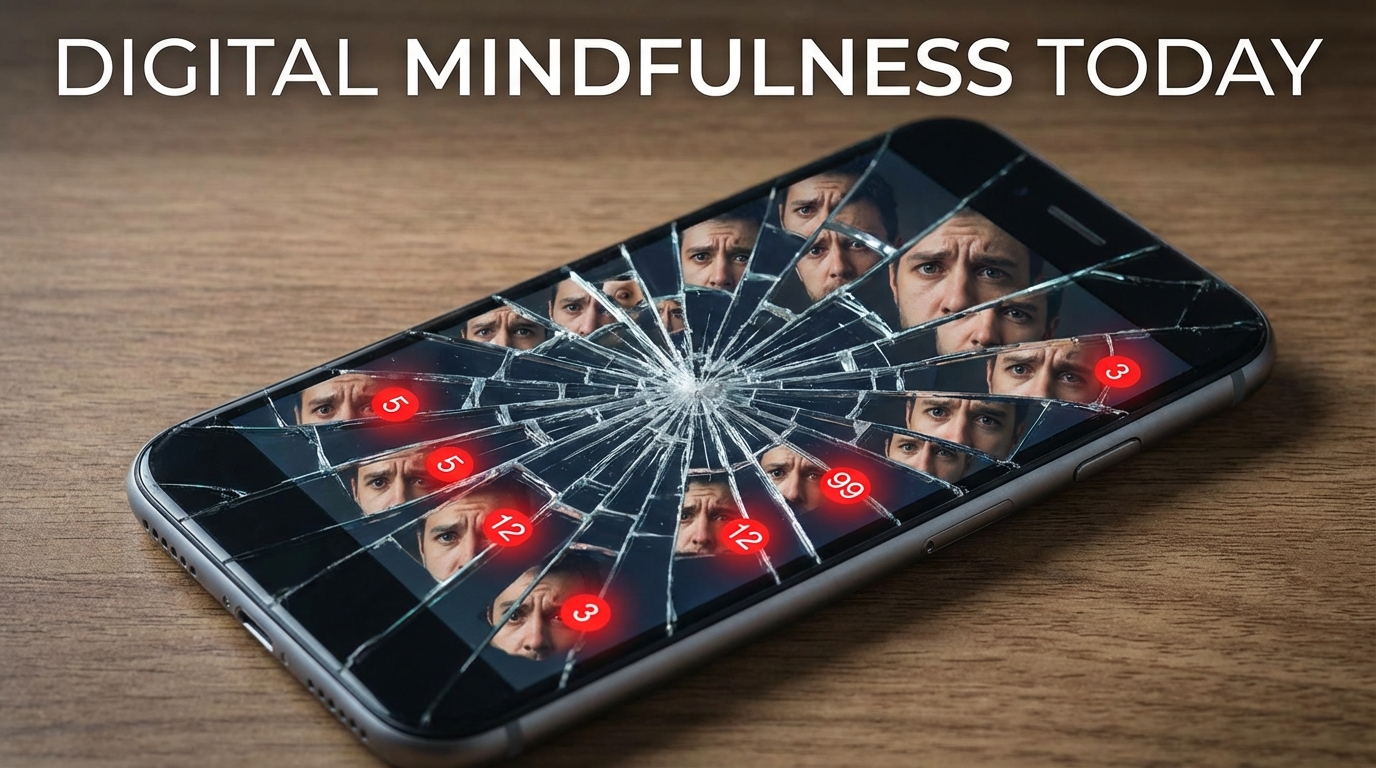Free PDF Guide:
GRAB ITFREE PTSD QUIZ
Health Conditions: Finding Hope After Traumatic Diagnosis
Receiving a traumatic diagnosis can be a life-altering experience for individuals and their families. It often brings a range of emotions including fear, shock, and uncertainty.
According to the American Psychological Association, one in four Americans will experience a traumatic event in their lifetime, making it a prevalent and relevant topic.
The impact of a traumatic diagnosis extends beyond just the physical symptoms. It can also take a toll on a person's mental and emotional health. However, it is important to remember that there is hope and support available, even in the darkest of times. This can greatly improve overall quality of life and wellbeing.
In this article, we aim to offer practical advice and encouragement to those affected by traumatic diagnoses. By sharing stories of resilience and hope, our goal is to help individuals find their own path to healing and empowerment.
Understanding Traumatic Diagnoses
What is a traumatic diagnosis
A traumatic diagnosis is a medical condition that has a significant and lasting impact on a person's life. Examples of traumatic diagnoses include cancer, Parkinson's disease, and other serious illnesses. Receiving a traumatic diagnosis can bring sudden changes and challenges to a person's life and can be overwhelming.
Types of Traumatic Diagnoses
There are various types of traumatic diagnoses, including physical illnesses, psychological conditions, and chronic diseases. Each type of traumatic diagnosis can affect a person differently and can come with its own unique challenges. For example, physical illnesses may cause physical symptoms, while psychological conditions may cause emotional and mental distress. Chronic illnesses, on the other hand, can be long-lasting and may require ongoing management.
Causes and Risk Factors
The causes of traumatic diagnoses can vary and may include genetics, environmental factors, and lifestyle habits.
Some conditions may have a genetic component, while others may be caused by exposure to harmful substances in the environment. Certain lifestyle habits, such as smoking or poor diet, may also increase a person's risk of developing a traumatic diagnosis.
Emotional and Psychological Impact
The emotional and psychological impact of traumatic diagnoses can be significant. People affected by traumatic diagnoses may experience feelings of anxiety, depression, and stress.
The impact of a traumatic diagnosis can also affect a person's relationships, work, and daily activities. It is important to address the emotional and psychological impact of traumatic diagnoses in addition to the physical symptoms, as this can greatly improve overall quality of life and wellbeing.
Coping with Traumatic Diagnoses
Self-care:
Self-care is crucial for individuals facing a traumatic diagnosis.
It may seem difficult to prioritize self-care when dealing with the challenges of a traumatic diagnosis, but taking care of oneself can greatly improve physical and emotional well-being.
Simple self-care activities, such as exercise, eating well, getting enough sleep, and engaging in relaxing activities, can make a big difference.
It's also important to take time for oneself and do things that bring joy and fulfillment.
Mindfulness:
Mindfulness is a practice that involves being present and aware in the moment, without judgment. It has been shown to be effective in reducing stress and improving mental health, particularly for individuals facing a traumatic diagnosis.
Mindfulness techniques, such as deep breathing, meditation, and mindfulness-based stress reduction (MBSR), can be easily incorporated into daily routines.
Regular practice of mindfulness can help individuals facing a traumatic diagnosis to better cope with stress and emotions.
Overcoming the stigma surrounding mental health:
Unfortunately, there is still a stigma surrounding mental health that can make it difficult for individuals with traumatic diagnoses and their loved ones to seek support.
Stereotypes and misunderstandings about mental health can cause individuals to feel shame or embarrassment about seeking help. It is important to challenge these stigmas and encourage individuals to seek support for their mental health without shame or embarrassment.
By talking openly about mental health and advocating for better understanding and support, we can help break down the stigma surrounding mental health and improve outcomes for individuals facing traumatic diagnoses.
Identifying and setting personal goals:
Setting personal goals can play a significant role in improving the quality of life for individuals facing a traumatic diagnosis.
Goals provide a sense of purpose and direction and can help people focus on what they can control. It's important to set realistic and achievable goals, such as maintaining physical activity levels or improving sleep habits.
These goals should be specific, measurable, and attainable, and should be reviewed and adjusted as necessary.
Managing symptoms and side effects:
Traumatic diagnoses can result in a variety of symptoms and side effects that can impact daily life. Common symptoms may include pain, fatigue, anxiety, and depression.
To manage these symptoms and side effects, it's important to work with healthcare professionals to find the best treatment options.
This may involve a combination of medications, therapy, and lifestyle changes. It's also essential to keep healthcare providers informed about any changes in symptoms or side effects, and to communicate any concerns.
Finding new meaning and purpose in life:
Finding new meaning and purpose in life after a traumatic diagnosis can be a challenge, but it's important for individuals to engage in activities that bring them joy and fulfillment.
Engaging in new hobbies, volunteering, or taking up new interests can help individuals with a traumatic diagnosis find a new sense of purpose and fulfillment. It's also essential to connect with others who are facing similar challenges and to seek support from family and friends.
Building resilience:
Building resilience is essential in the face of a traumatic diagnosis.
Resilience refers to the ability to cope with adversity and bounce back from setbacks.
To build resilience, individuals should seek support, engage in self-care activities, and practice mindfulness.
Self-care activities may include exercise, eating well, getting enough sleep, and engaging in relaxing activities.
Mindfulness techniques, such as deep breathing, meditation, and mindfulness-based stress reduction (MBSR), can also help individuals build resilience and reduce stress.
A traumatic diagnosis can be overwhelming and life-changing.
It is normal to feel overwhelmed, scared, and uncertain about the future. But it is important to remember that there is hope and that there are steps you can take to improve your quality of life. In this article, we discussed the importance of seeking support, coping strategies, and improving quality of life.
Recap of Key Points:
- Seeking support from family, friends, or mental health professionals is crucial for individuals facing a traumatic diagnosis.
- Self-care, mindfulness, and overcoming the stigma surrounding mental health are important coping strategies that can help individuals manage the impact of a traumatic diagnosis.
- Setting personal goals, managing symptoms and side effects, finding new meaning and purpose in life, and building resilience are key ways to improve quality of life.
We understand that facing a traumatic diagnosis can be difficult, but we encourage you to take action and implement the strategies discussed in this article. Remember that seeking support and taking care of your well-being can have a significant impact on your overall quality of life.
In addition to taking care of yourself, it is important to continue seeking support and advocating for your well-being, as well as the well-being of others facing traumatic diagnoses.
We encourage you to educate yourself and spread awareness about the impact of traumatic diagnoses on individuals and their loved ones. There are many resources available for continued support, such as hotlines, support groups, and mental health services.
By taking action and advocating for yourself and others, you can help create a brighter future for those facing traumatic diagnoses.
DFMMasterclass
How to deal with a difficult family member
References
- Kübler-Ross, E., & Kessler, D. (2005). On Grief and Grieving: Finding the Meaning of Grief Through the Five Stages of Loss. Scribner.
- Tedeschi, R. G., & Calhoun, L. G. (2004). Posttraumatic growth: Conceptual foundations and empirical evidence. Psychological Inquiry, 15(1), 1-18.
- Frankl, V. E. (2006). Man's Search for Meaning. Beacon Press.
- Seligman, M. E. P. (2011). Flourish: A Visionary New Understanding of Happiness and Well-Being. Free Press.
- Snyder, C. R. (2000). Handbook of Hope: Theory, Measures, and Applications. Academic Press.




